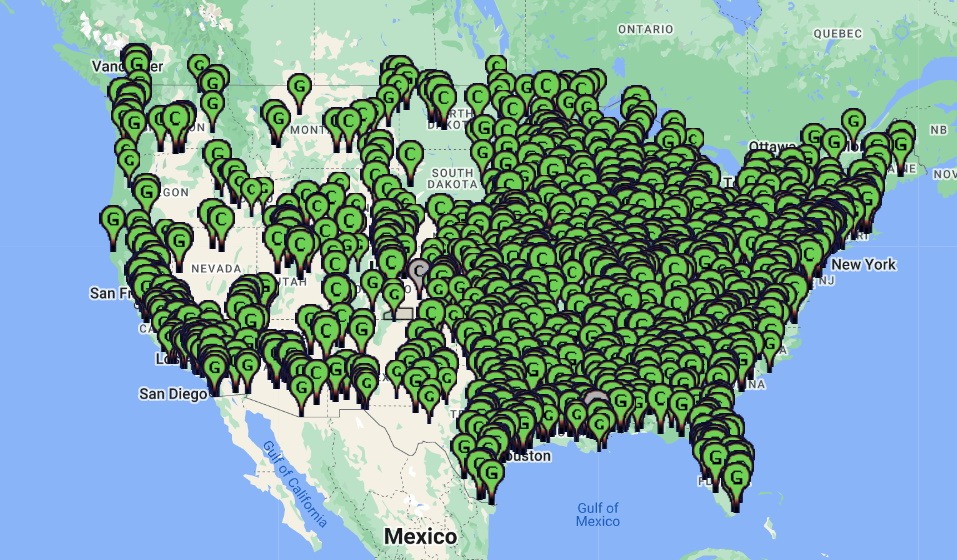– by Seth Slabaugh, November 11, 2014, The Star Press
Cardinal Ethanol has paid a $9,600 fine to settle a complaint that it violated its Clean Air Act operating permit.
The penalty is insignificant in light of the grassroots, investor-owned company’s profitability — $26.4 million net income for the fiscal year ended Sept. 30, 2013.
President Jeff Painter said revenue and income data for fiscal year 2014 are not available because an independent audit has not been completed.
But according to Securities and Exchange Commission information, the company’s net income for the third quarter of fiscal year 2014 totaled $29.4 million.
Until now, Cardinal Ethanol had been the only biofuels plant in East Central Indiana that had not paid a civil penalty for alleged air or water violations. Those violations usually occur during planned shutdowns for maintenance or start-ups.
“We paid the assessment in order to expedite this settlement,” Painter said.
According to the Indiana Department of Environmental Management, the company did not take reasonable steps to restore an air pollution scrubber’s operation to normal operation as soon as practical during planned shutdowns in 2011-13.
The complaint also accuses the company of failing to record visible emissions of bag house exhaust around Christmas time in 2012.
The plant produced 110 million gallons of ethanol; 314,321 tons of distillers grain used in cattle feed; and 26.5 million pounds of corn oil in fiscal year 2013.
Cardinal Ethanol needs about 39 million bushels of corn a year, or 107,000 bushels a day, to produce 110 million gallons of ethanol.
An ethanol plant is essentially a fermentation plant, Cardinal Ethanol says in its SEC reports. Ground corn and water are mixed with enzymes and yeast to produce a substance called “beer,” which contains about 10 percent alcohol and 90 percent water. The beer is boiled to separate the water, resulting in ethyl alcohol.
While the fine was insignificant, the company says in its SEC reports that environmental regulations, which often require expensive pollution control equipment, can be expensive and reduce profitability.
“Carbon dioxide may be regulated in the future by the EPA as an air pollutant, causing us to obtain additional permits and install additional … equipment,” the company reported to investors.
Besides greenhouse gases, other air pollutants of concern emitted by ethanol plants include volatile organic compounds, acetaldehyde and particulate matter.
In 2010, IDEM issued Cardinal Ethanol an operating permit for air emissions that increased the plant’s operating capacity and emission limits, including those for particulate matter. The Natural Resources Defense Council (NRDC) appealed the issuance of that and other ethanol air permits, winning at the Indiana Court of Appeals level.
“IDEM has petitioned to transfer the matter to the Indiana Supreme Court and the parties are awaiting a decision on the petition,” the company reported in August. ” … should NRDC’s challenge of our permit ultimately be successful … this would result in a decrease in our production of ethanol and distillers grains and could have a negative effect on our profitability.”
However, Painter this week told The Star Press: “After the Indiana Supreme Court reversed a ruling in favor of NRDC on the same issue but involving different ethanol plants, NRDC voluntarily filed a motion to dismiss its administrative challenge to Cardinal’s … permit.”
The POET Biorefining ethanol plant in the Madison County community of Alexandria has been fined more than $55,000 for alleged violations of its permit; the POET Biorefining plant in Portland has been fined $18,000; and the Central Indiana Ethanol Plant in Marion has been fined $22,500.
In addition, Central Indiana Ethanol now faces another fine for alleged violations including failure to operate a scrubber to control emissions of volatile organic compounds and hazardous air pollutants during a three-day shutdown this past May.
In 2008, soy bio-diesel producer E-Biofuels, Middletown, paid IDEM a penalty of $18,000 for discharges into sanitary sewers that interfered with operations of the town’s wastewater treatment plant.
Last year, E-Biofuels was accused of buying low-grade fuel from elsewhere, shipping it to its Middletown plant, switching labels, marking up prices and selling the product as premium fuel to its customers. Federal officials says the company cheated investors and taxpayers out of more than $100 million.
The Louis Dreyfus soy bio-diesel plant in the Kosciusko County community of Claypool was fined $103,750 in 2009 over alleged start-up violations. The plant was fined another $7,750 last year.

